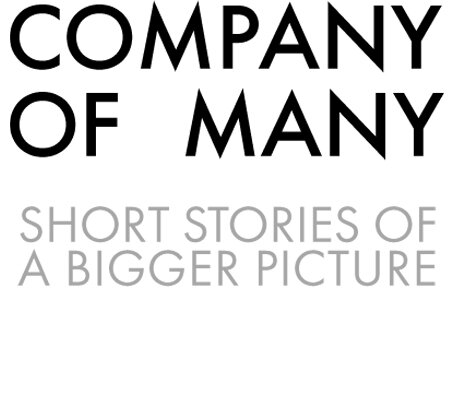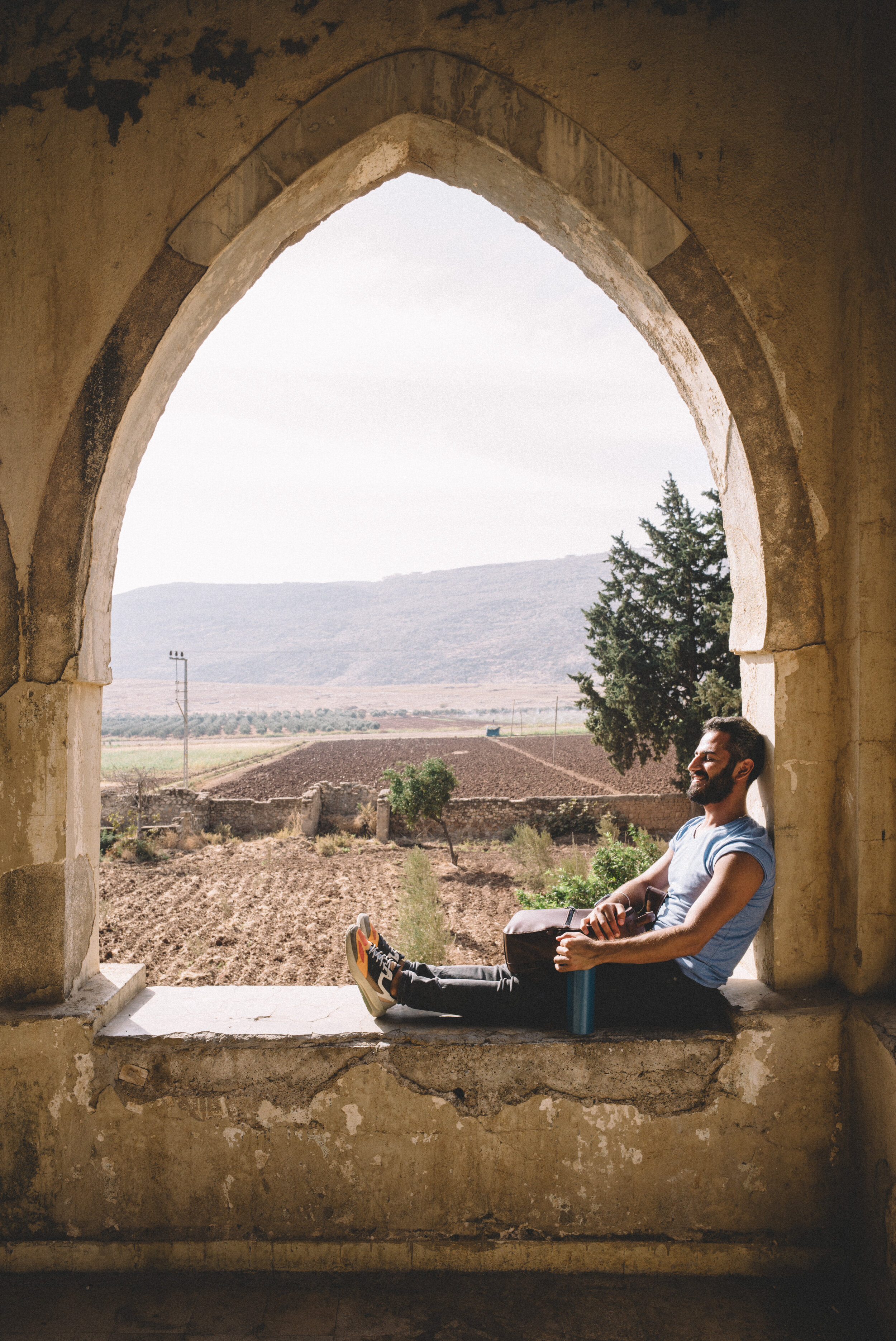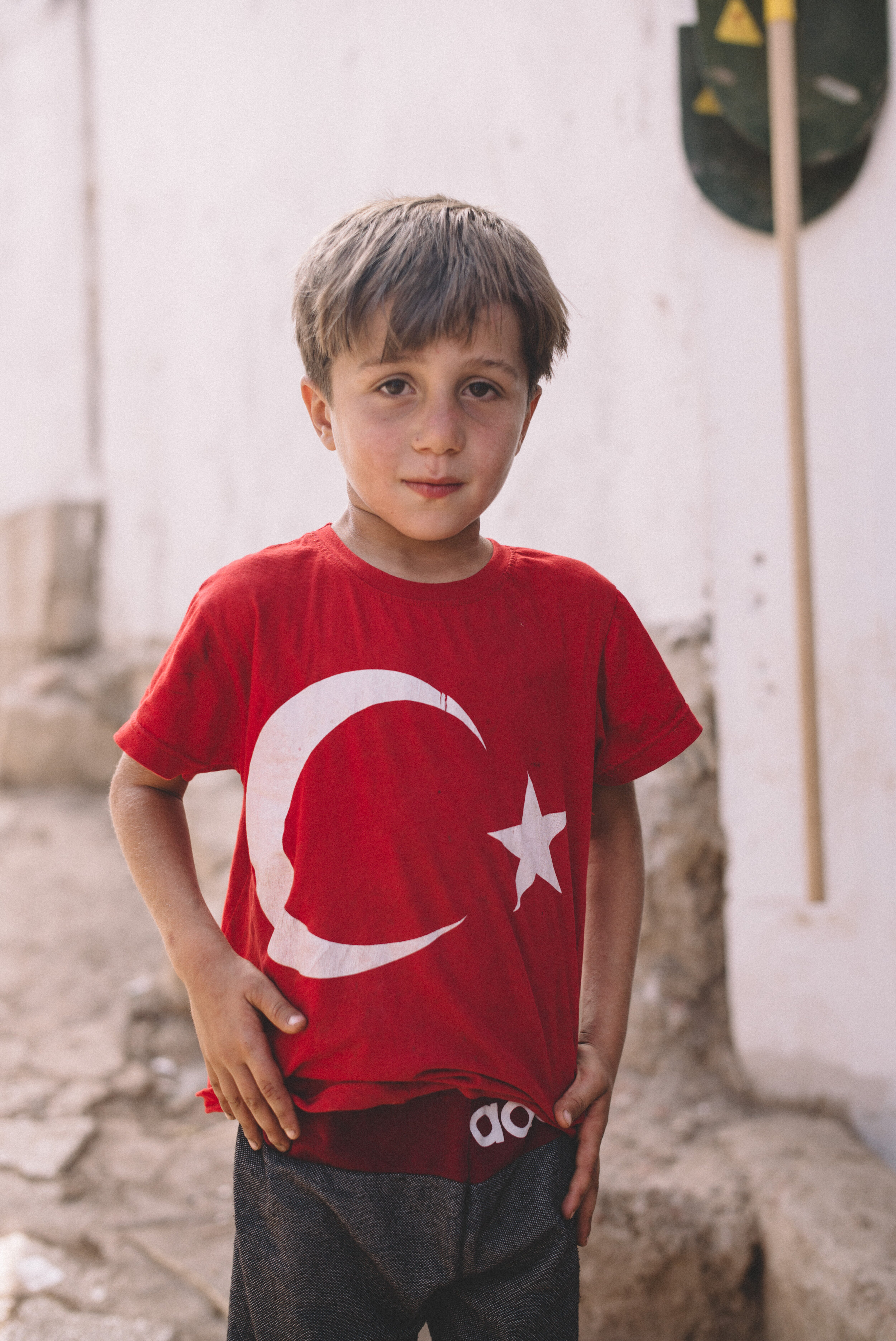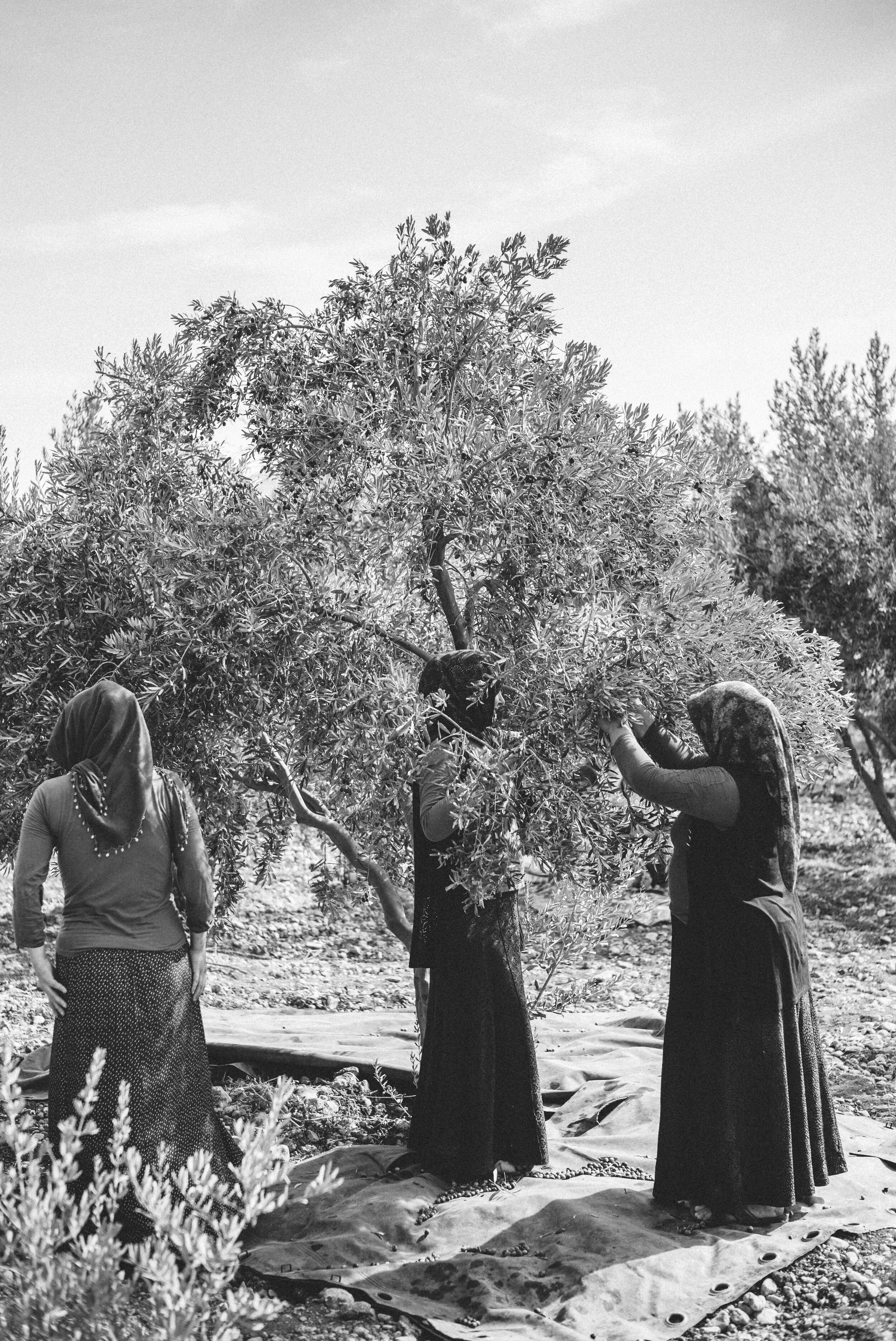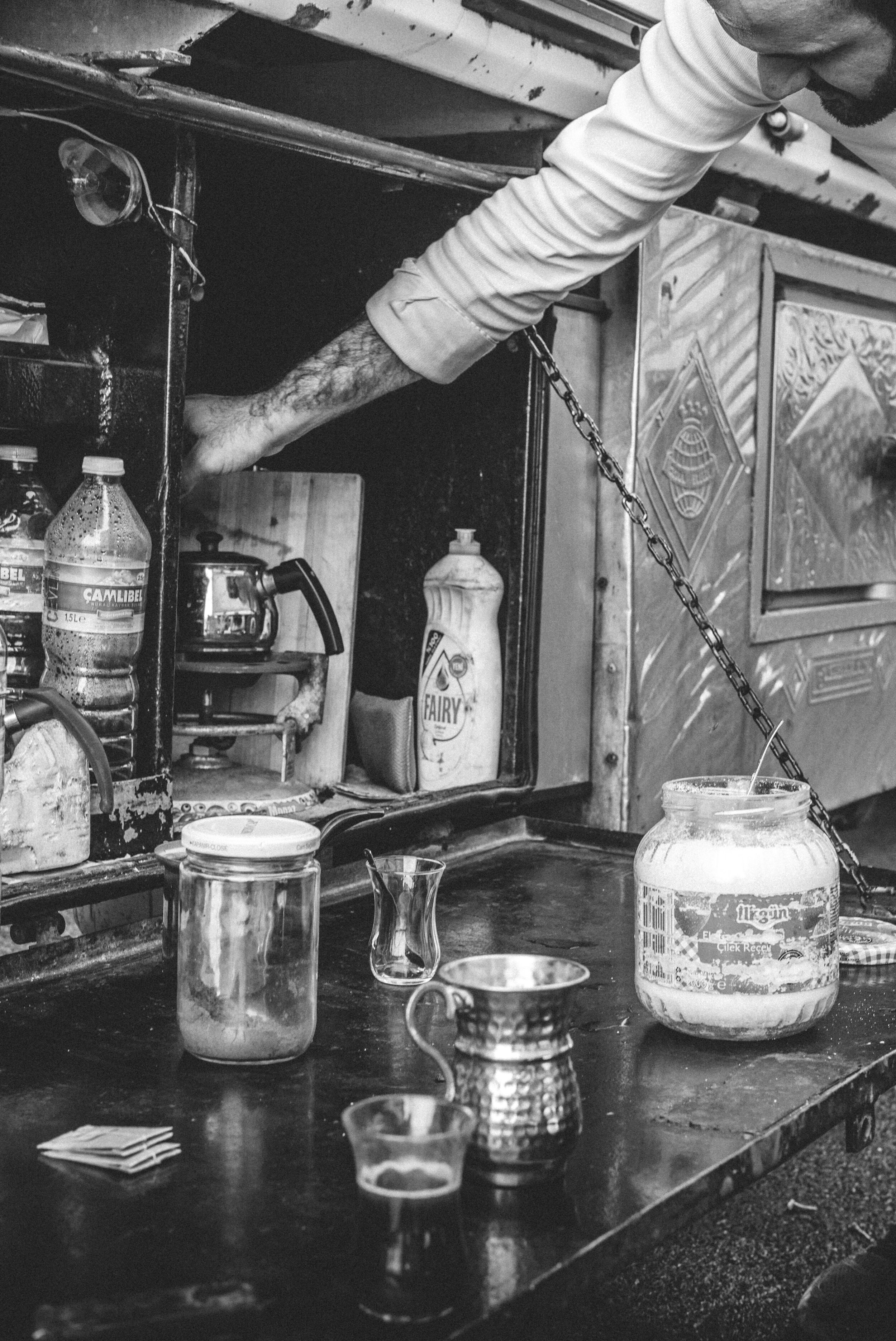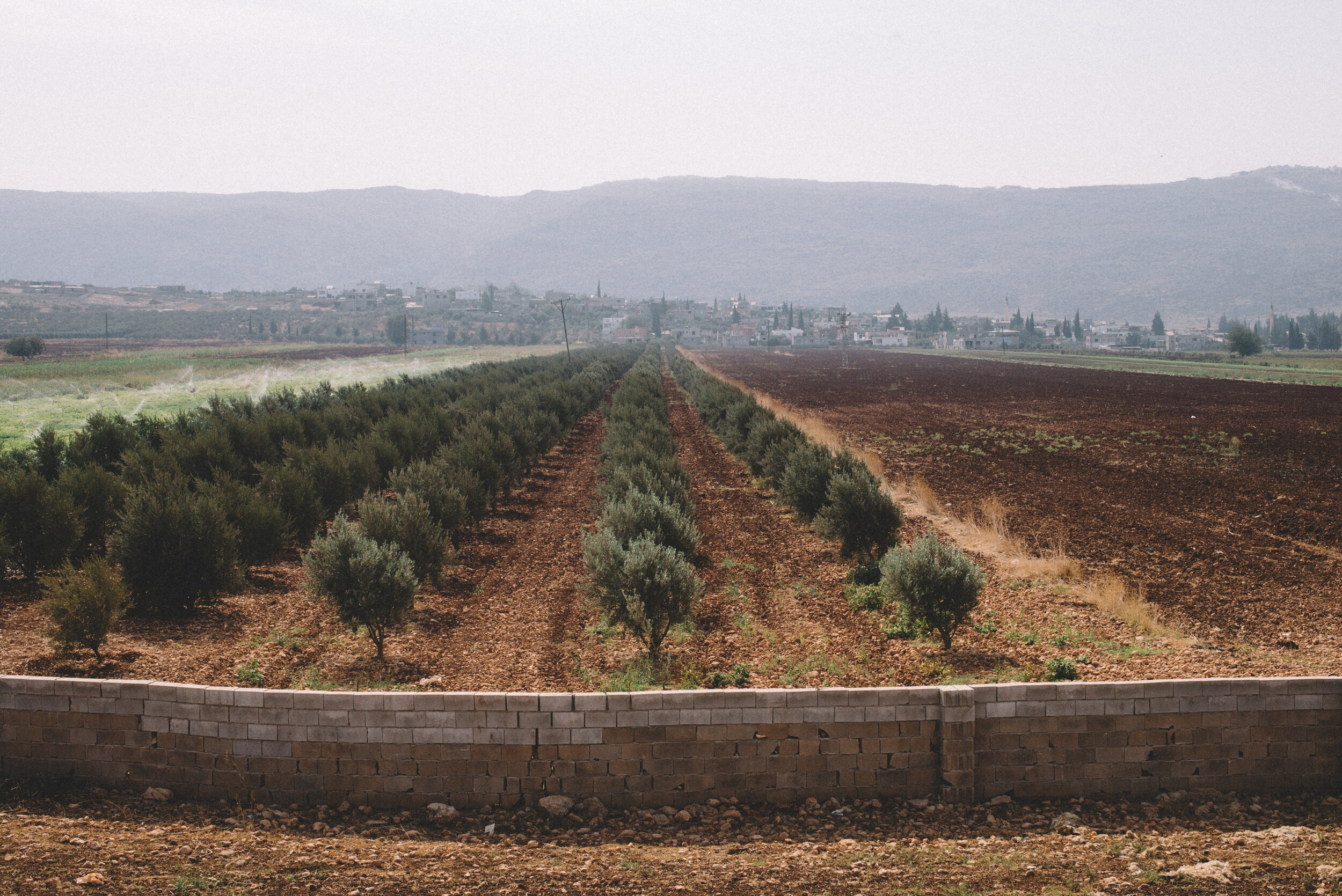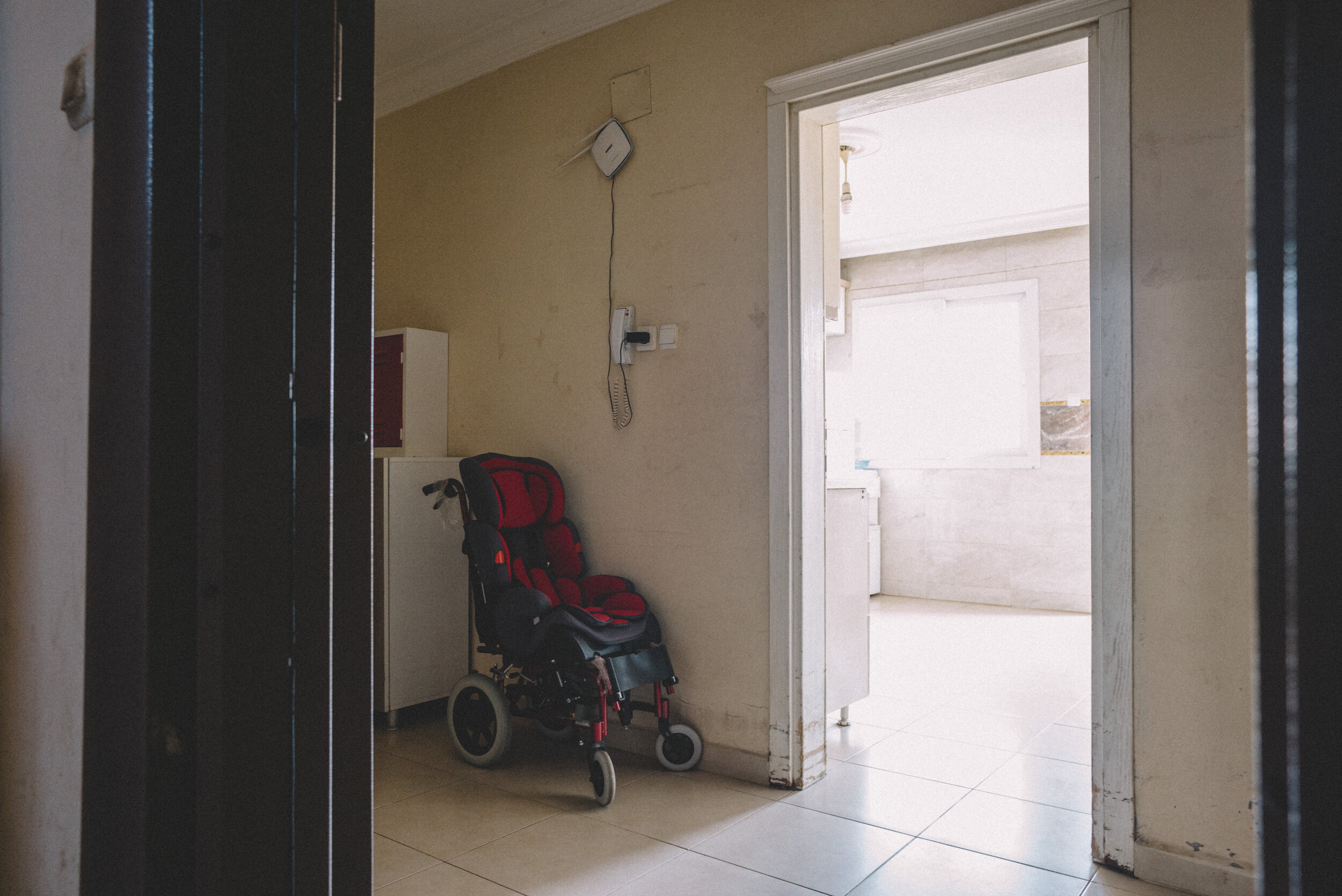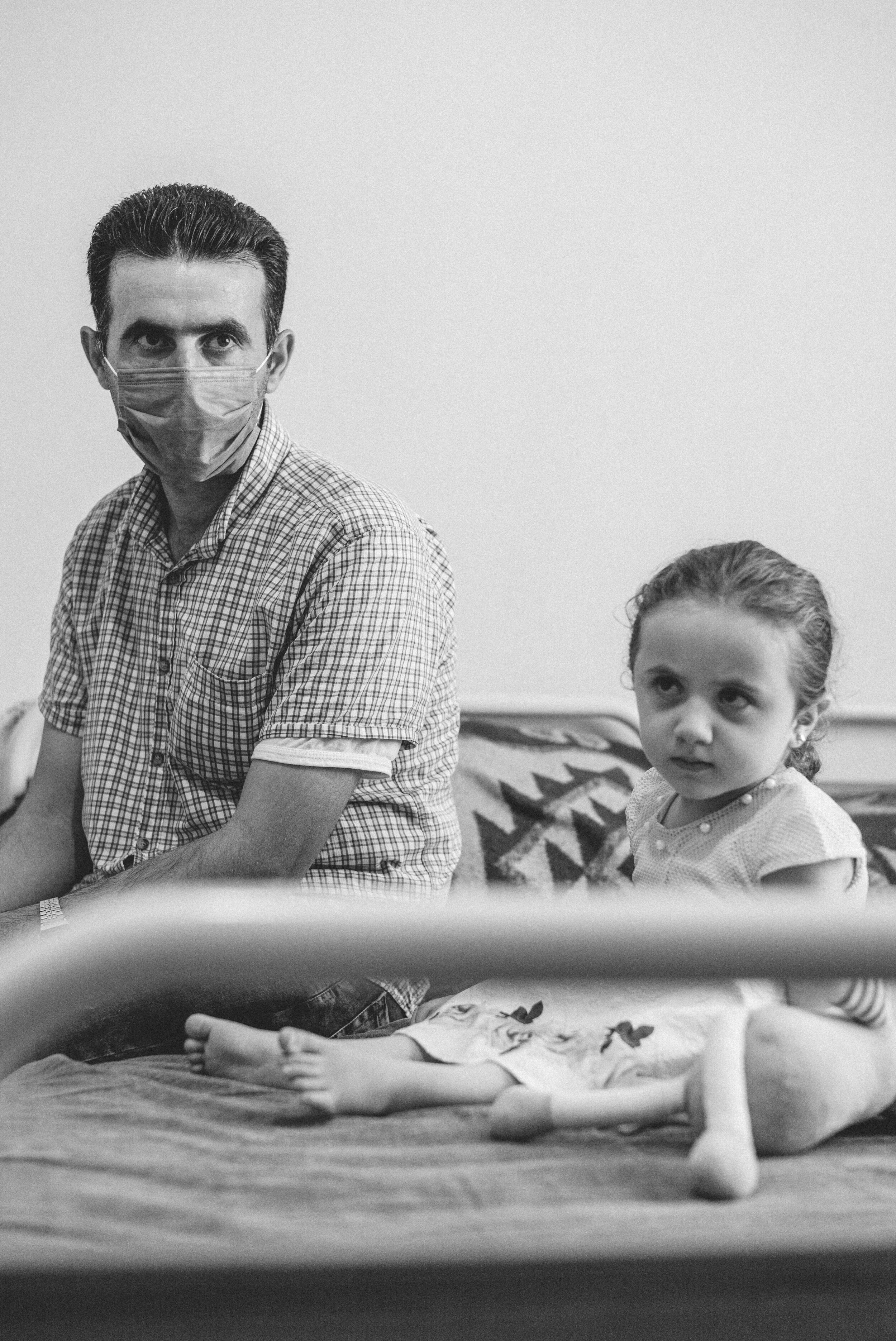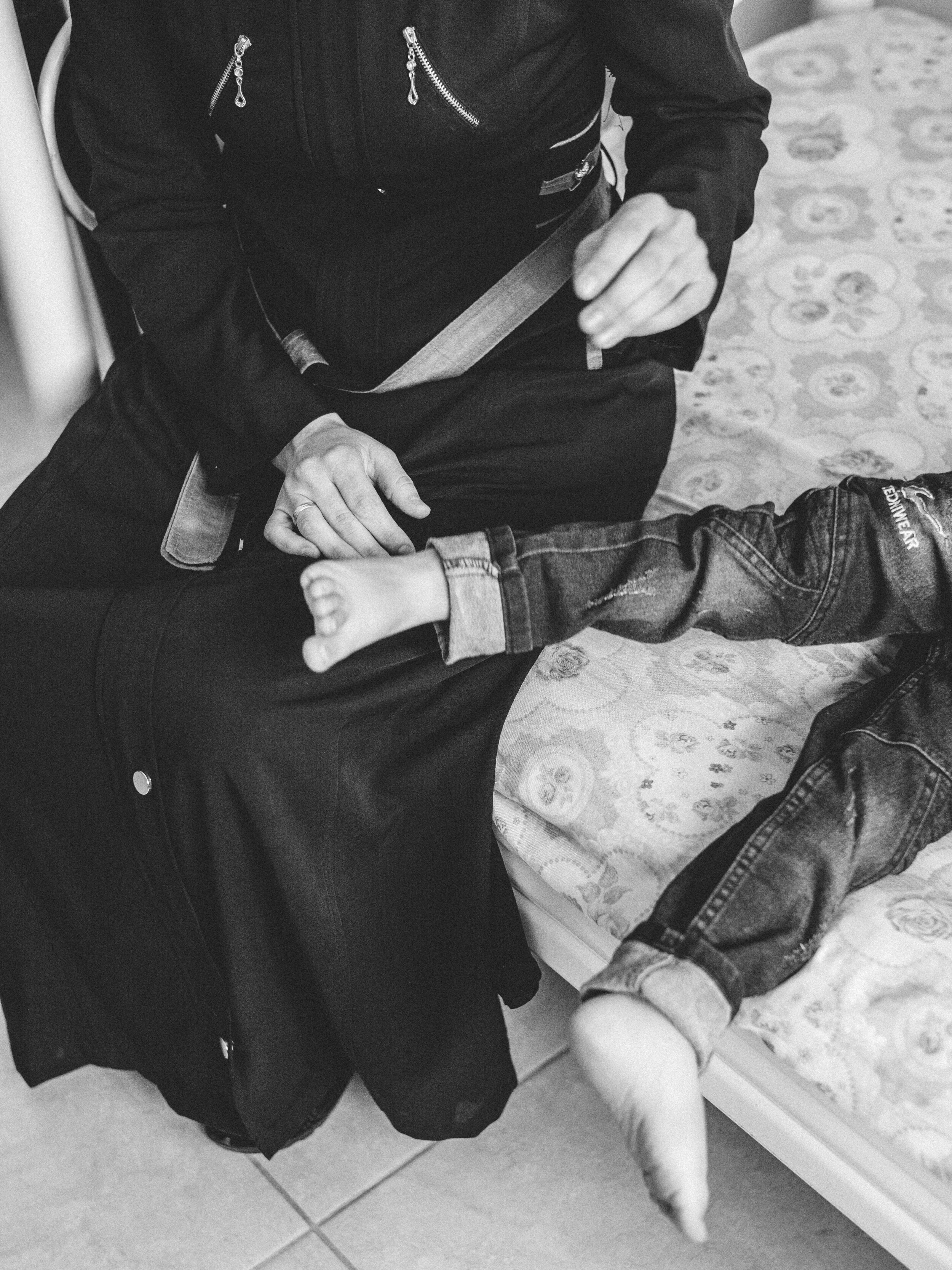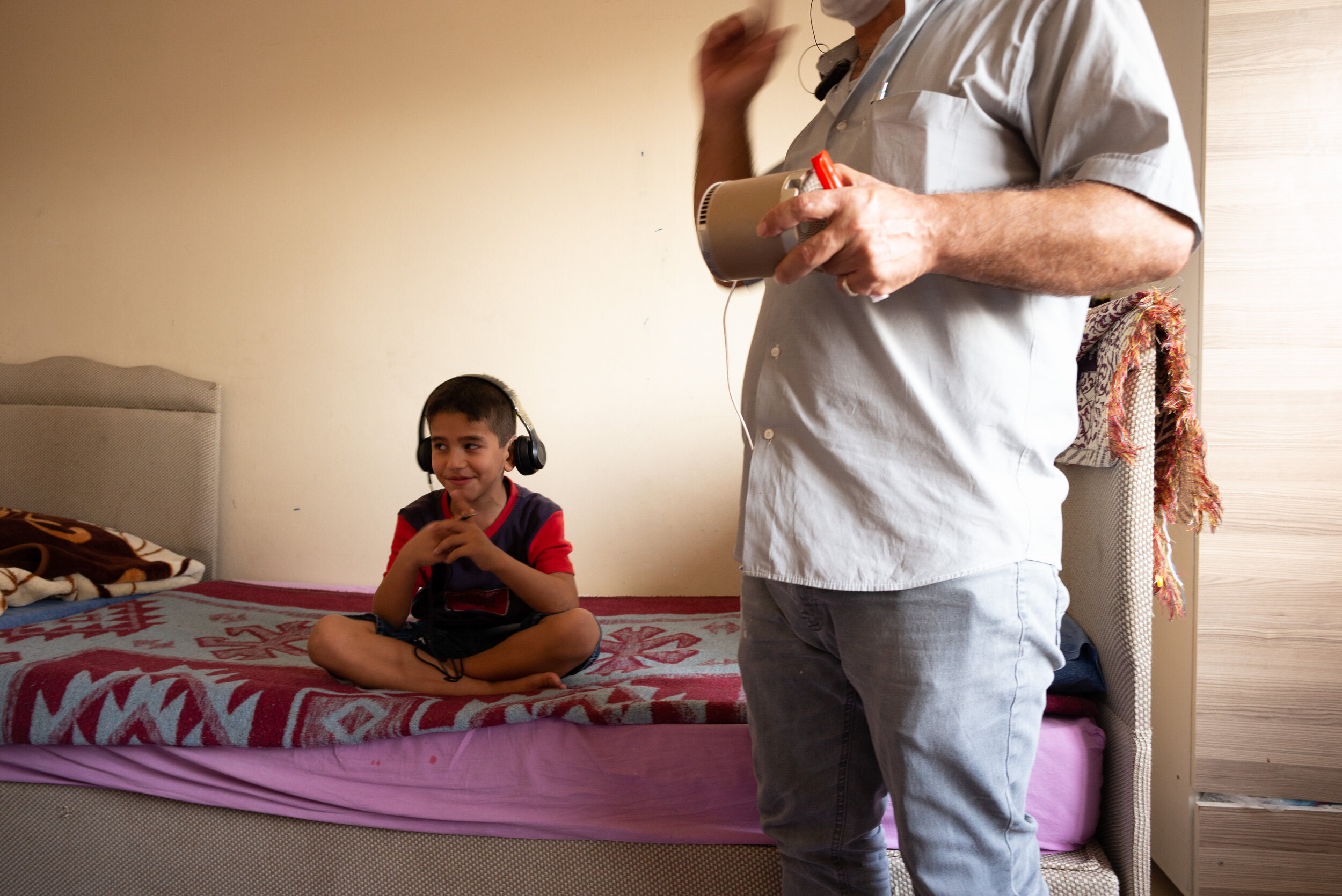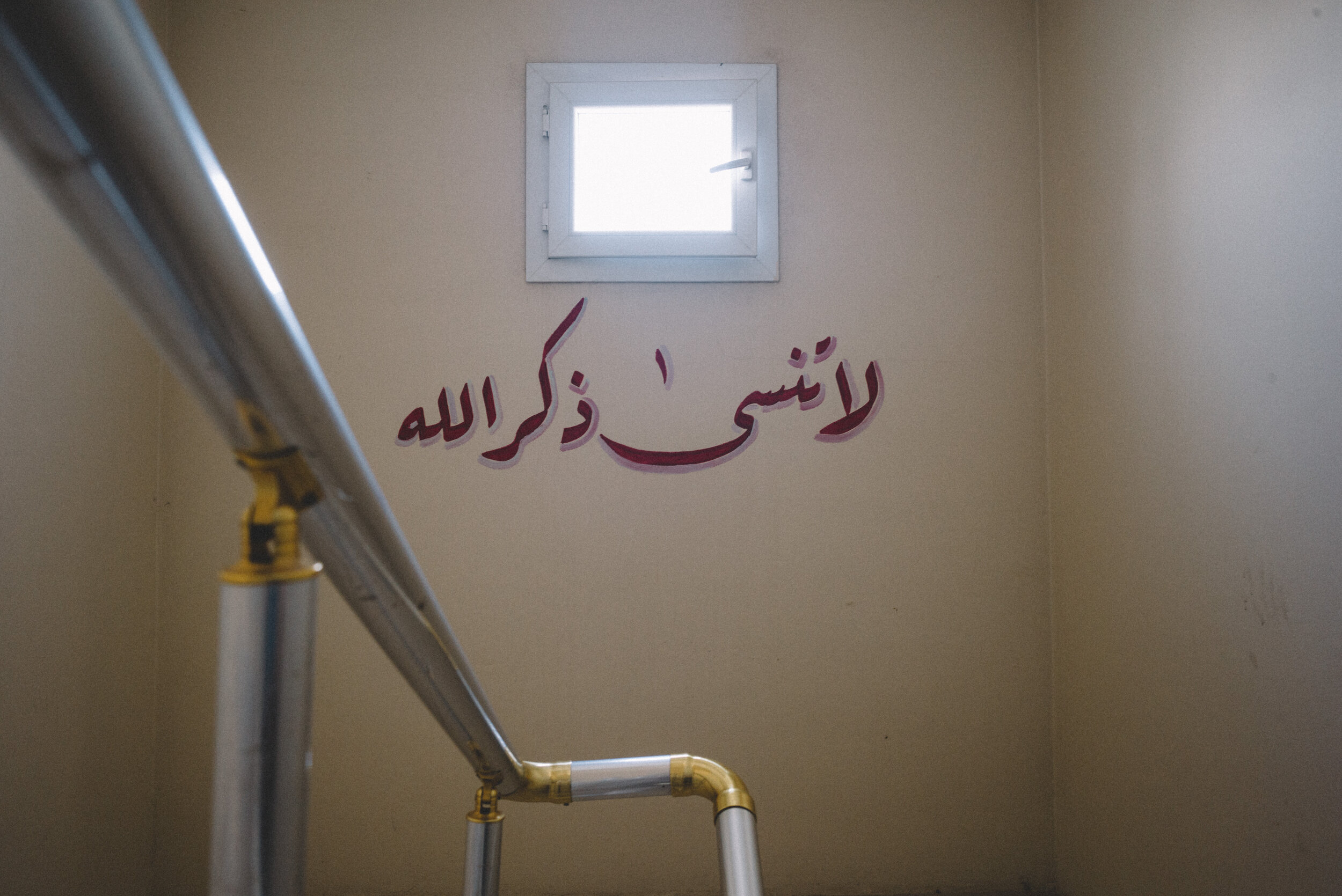A wide state road leads from Reyhanli’s peripheral villages to the Turkish-Syrian border. We park the car at a gas station on the outskirts of the city and walk down this highway, passing a sheepherder and dairy factories. There are new houses being built, with bare concrete walls and dusty yards. Someone calls out, suspiciously - wanting to know if we’re Russians. We laugh it off, vigorously nod no. “Good thing, too, because if you were you shouldn’t dare to show yourselves here. We regard the Russians as the enemy here. Alway have done, too. I can remember previous wars against them, and when I was younger, was happy to join. We are Turks here.” The man, a grey authoritative figure with some years behind him, looks on. Good that Daniel is to tall, he indicates.
Behind his yard starts the last village this side of the border. Neighborhood boys run ahead, showing us the way to an abandoned country house. The pool is empty and rusty and overlooks the last field. We feel like movie stars on a stripped-down set - until a grandparent angrily takes one of the kids, shaking him for daring to trespass some forsaken property.
Across, women are harvesting an olive tree orchard.
Back on the scorching hot tarmac of the road we join two truck drivers on their pitstop. Reyhanli is a transport hub that leads into the Turkish military buffer zone northern Syria. The lorries are let to deliver goods in that area; if the haul has to be delivered even further south, it is moved into Syrian trucks. The men have to wait for their paperwork to satisfy the authorities and have parked their trucks together to be able to have some shade on break.
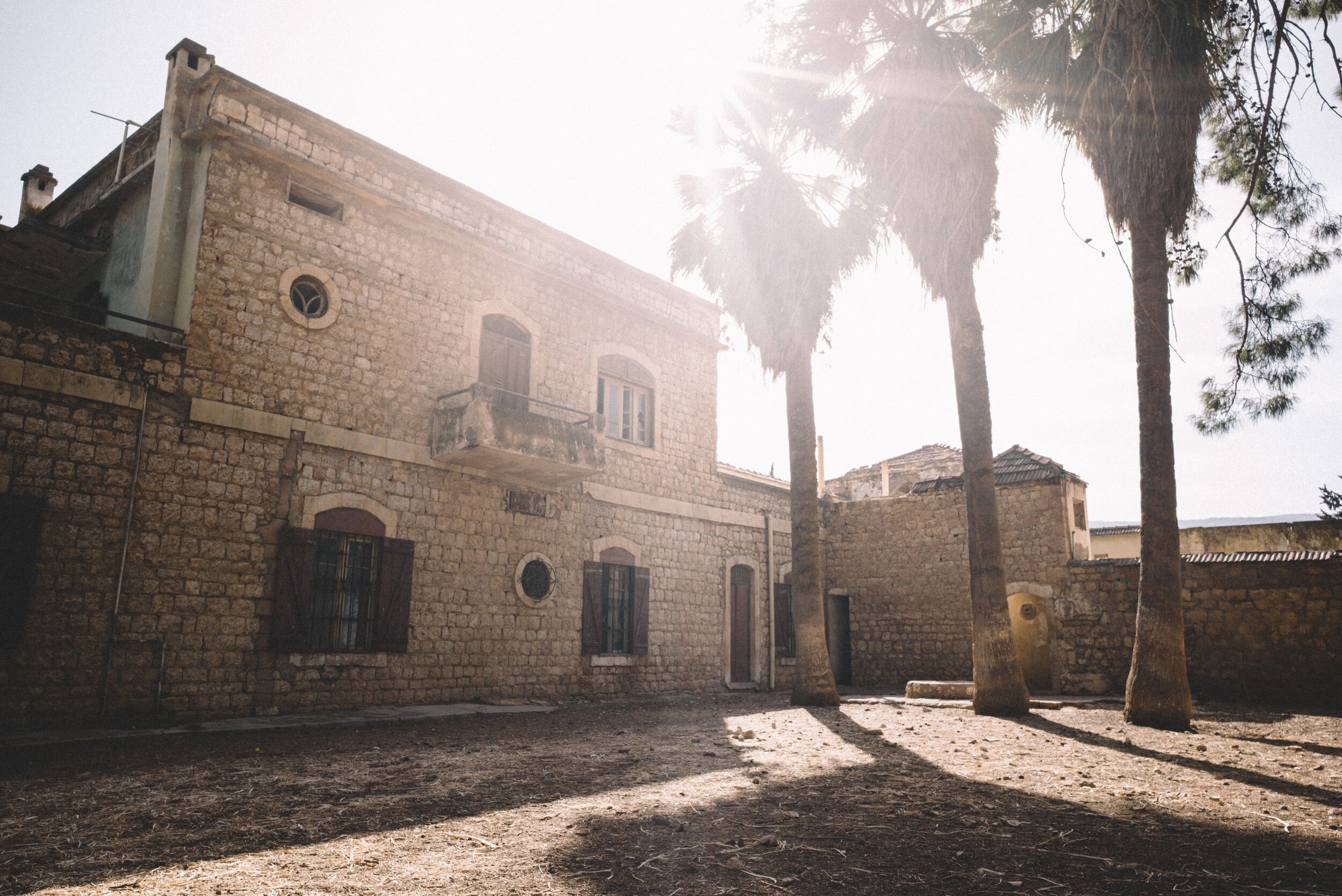
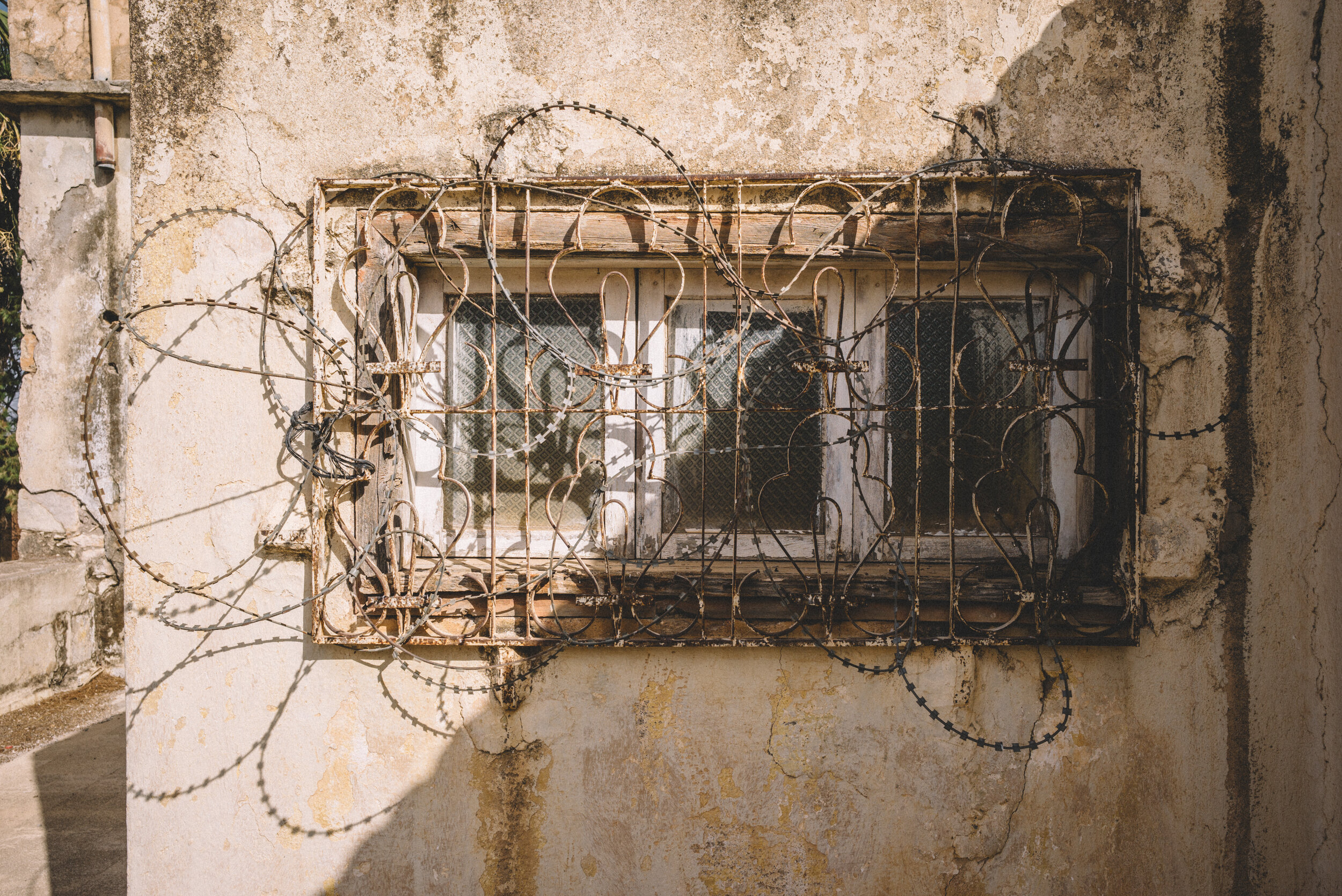
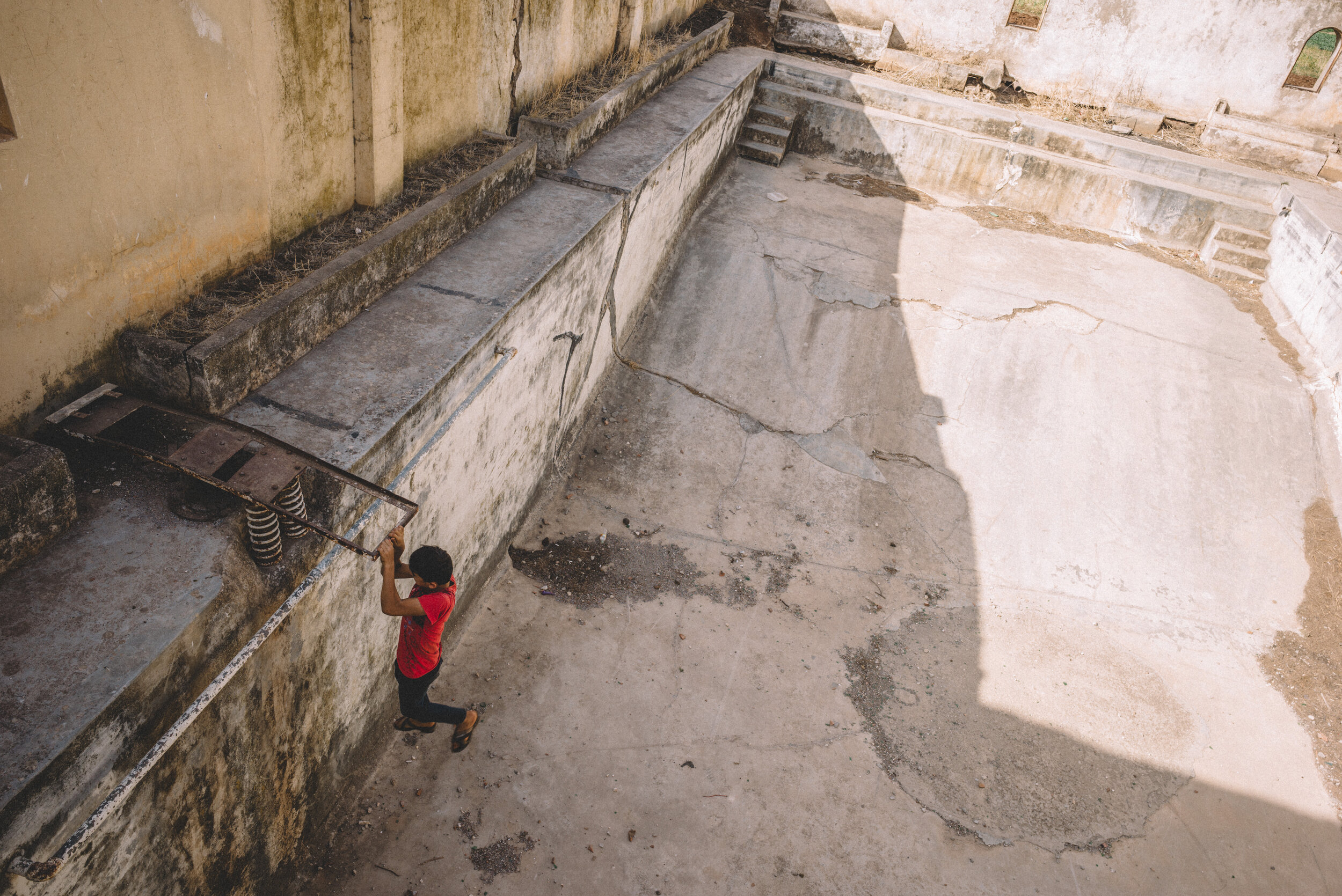
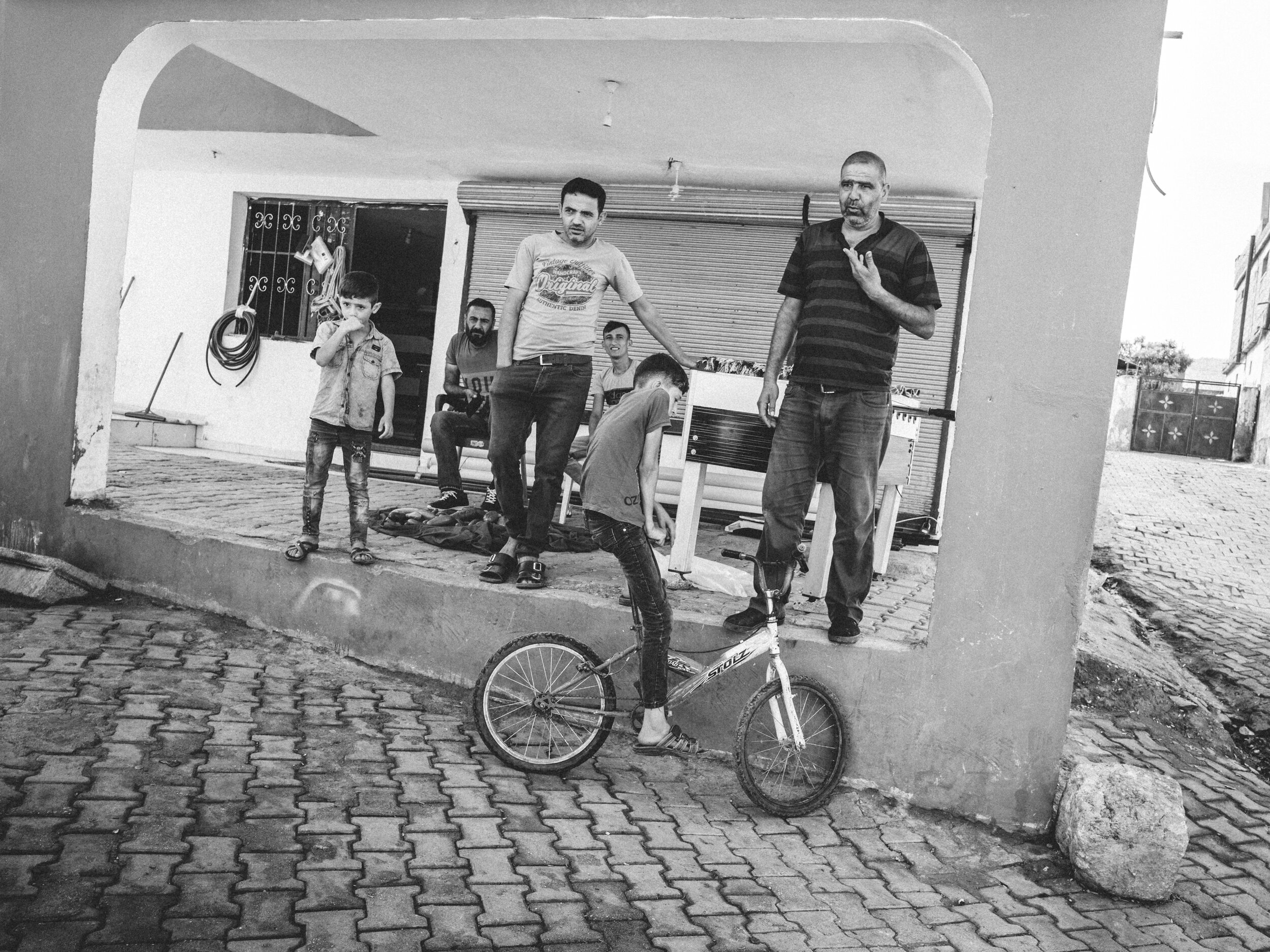
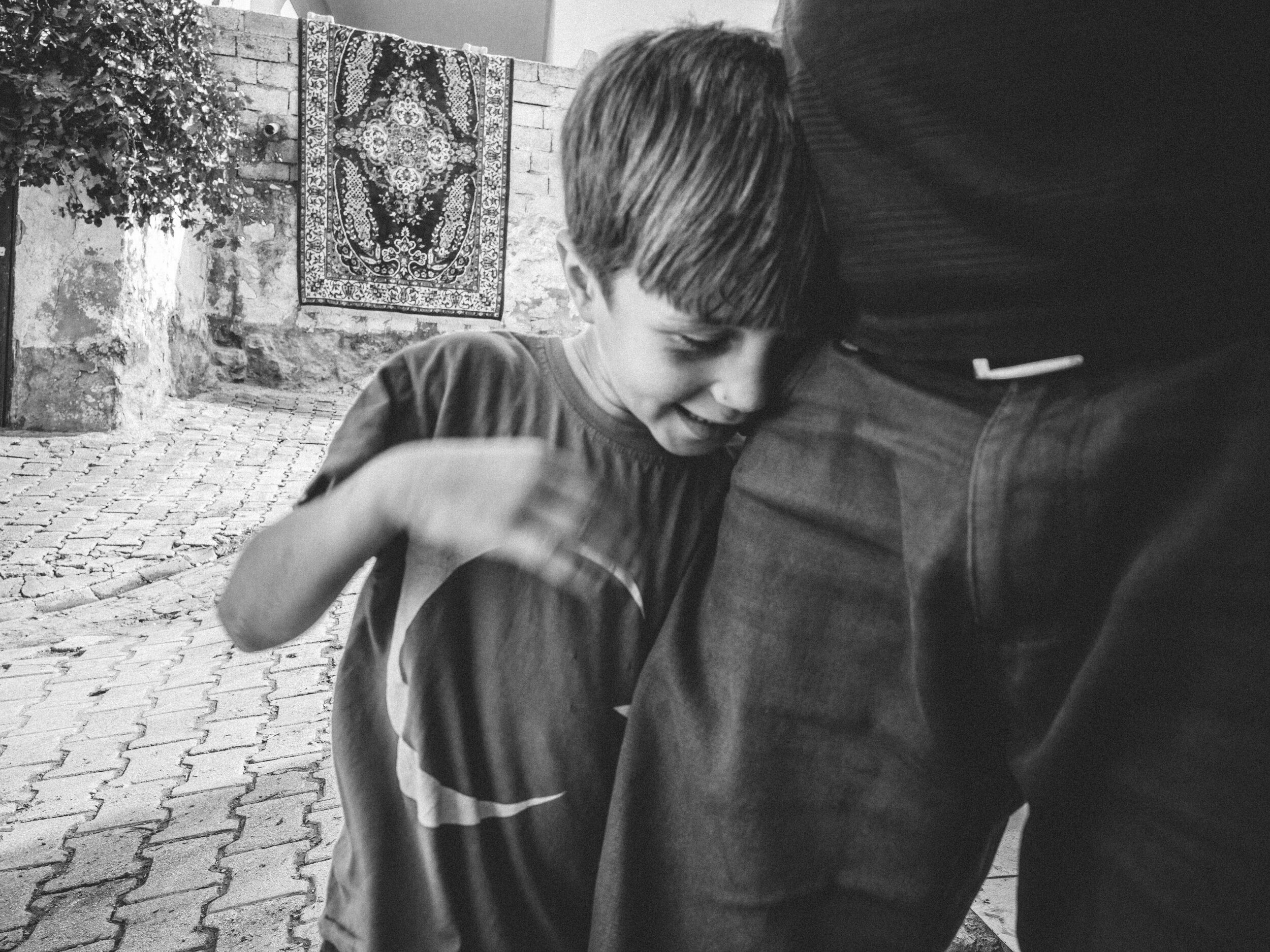
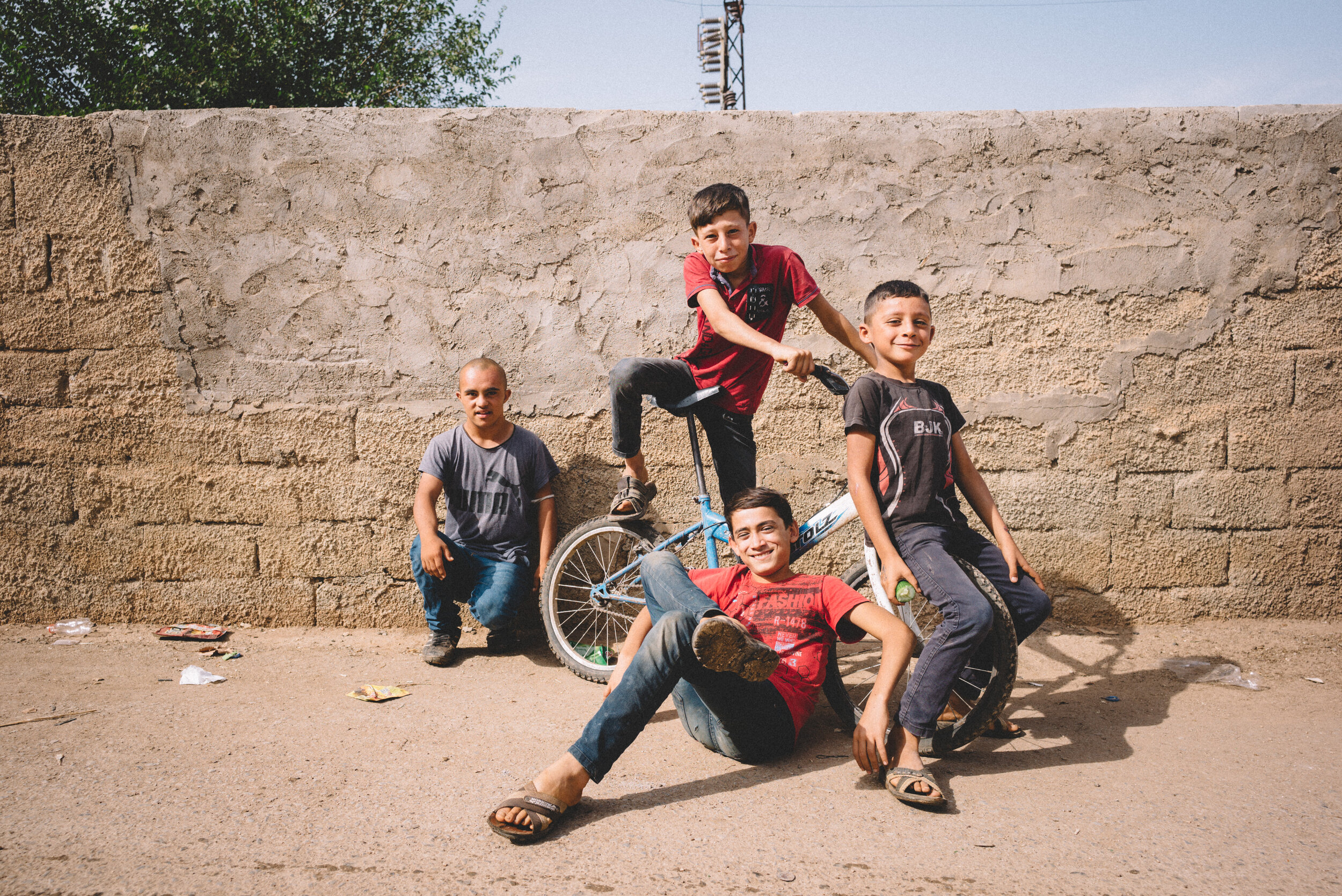
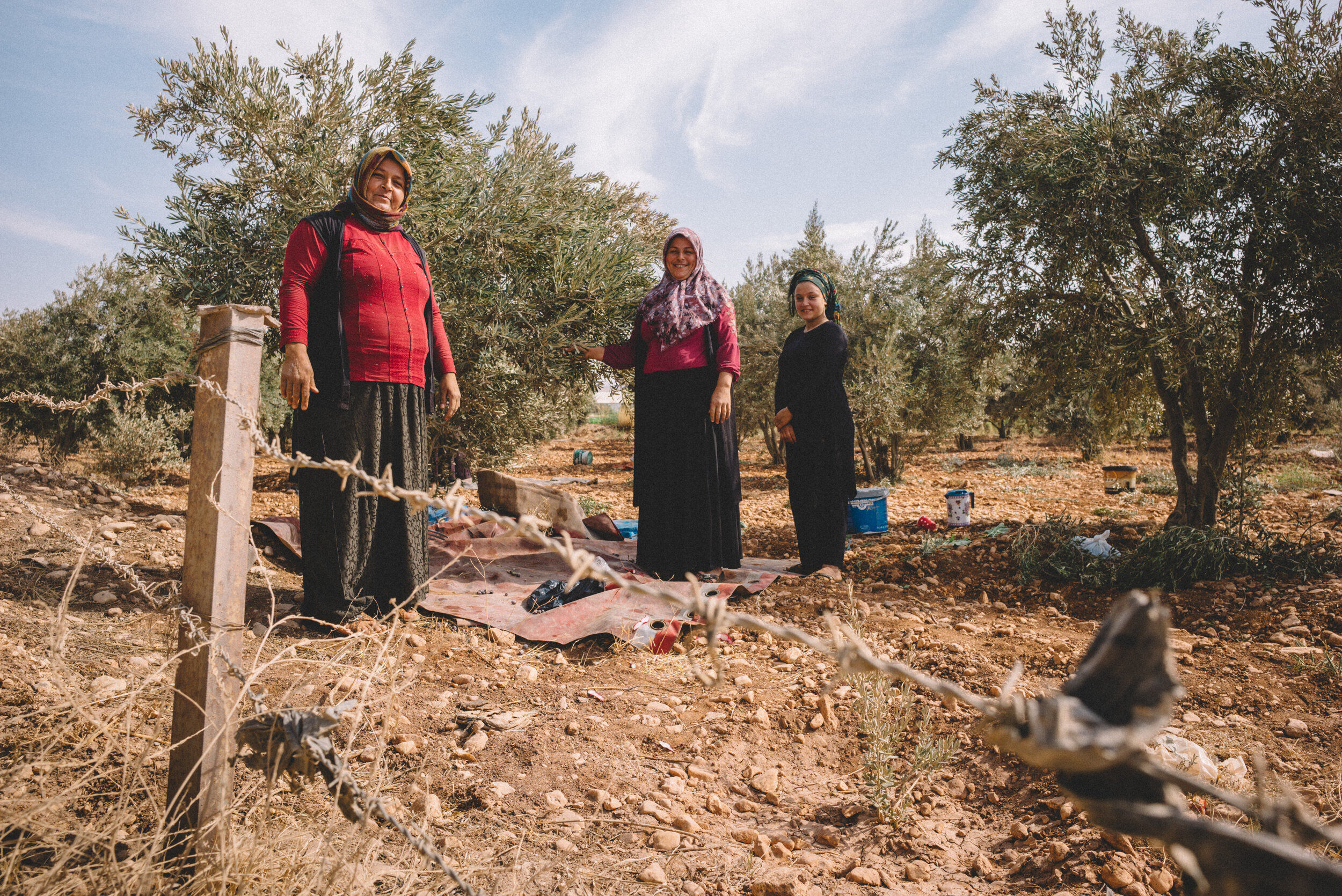
20 October 2020: Reyhanli Rehabilitation Centre
In this creme-colored apartment block, people are placed in two categories. The wounded coming in with acutely threatening wounds inflicted in battle or incurred in bombings, those are considered the ‘hot’ cases. ‘Cold’ patients are Syrians, refugees, brought in temporarily to receive treatment for an existing ailment - often a serious decease, like cancer. Once they have completed the therapy, the patients are returned to their refugee lives in the border camps.
Women, men and children are divvied up in the building’s different levels. The wing that houses individual female patients is on the top floors, levels five and six. On the day we visit, a new resident has just been brought in from Syria. She wants to remain anonymous, but is willing to receive us.
We step over the threshold and, barely crossing into this space before we are taken in by Taghrid. She’s not the newcomer in question, but a much more seasoned occupant. She sways about in the softly-lit corridor, dark coverings rustling, and shakes my hand vigorously. Soon enough we are close to hugging. “I can speak some English. I will stay with you to introduce you. We all will.”
The room at the end of the hall is full, and filled occasionally with low murmurs, soft voices of women who speak confidently amongst each other. There is a window here, the day’s bright light streams in. The men - photographer, fixer, manager - all stop dead short at the second doorstep.
The seven of them, women sitting on their beds, look at me. They are each cancer sufferers. And cancer survivors. And returnees to the rehab centre, at least about half of these group. They have routinely re-applied for a medical hall-pass to cross into Turkey again and again: for a new treatment, or a continued treatment, or to be treated for a new cancer.
I am scrambling here, in this crisp daylight, trying to approach them as openly and warmly and kindly. I am no medical doctor. I didn’t leave a family behind in search of health. Hell, I screw health - I’m trying to walk double digit kilometers each day on so much as a Snickers bar. But I guess… I am a woman, too? The questions falter a little bit when they come out. My quavering voice is met with shakes of heads and shrugs of shoulders and the women shifting on the bed springs. I hear eight names and ages. I hear about hours spent in busses to make doctors appointments. They confirm to me of support felt in this restful space, from one single-person bed to another.
I want to leave and I want to stay. It’s me who ushers our little crew back out, through the dim corridor again. I find myself holding Taghrid’s hand. “Me too, you know”, she says. “I have cancer too. I’ve been here before. And now there’s something in my leg.” With a slight look at Daniels retreating back, she hoists up her clothes, rubs her thigh to show me. Taghrid is my age. As she clasps my wrist, her other hand holds a bejeweled smartphone. I dream of her four nights straight.
